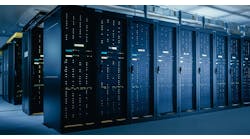A sweeping climate bill introduced in the US House of Representatives this week includes billions in microgrid funding.
The CLEAN Future Act authorizes $565 billion in spending to cut greenhouse gas emissions to net zero by 2050, with an interim target of reducing carbon pollution by 50% from 2005 levels by the end of this decade.
The bill, H.R. 1512, introduced March 2, requires utilities to sell increasing amounts of carbon-free electricity until the power sector is fossil-fuel free by 2035. This is in line with a goal set by President Joe Biden.
The legislation builds on a draft bill House Democrats released in January 2020.
The 981-page bill creates a zero-emissions credit trading program, aims to bolster transmission development, supports electric vehicles and promotes energy efficiency measures. It also has specific provisions focused on microgrids.
$1.5 billion microgrid grant program
For example, the bill requires the Department of Energy (DOE) to set up a program to provide funding for technical aid, community outreach and project development for clean energy microgrid projects that increase resilience to climate change risks.
The bill authorizes $1.5 billion a year for grants for clean energy microgrid projects over 10 years as well as $50 million a year for technical assistance and outreach. If the bill becomes law, Congress would have to approve the authorized spending through the appropriations process.
Eligible power sources for the clean energy microgrids are solar, wind, geothermal, existing hydropower, micro-hydropower, hydrokinetic and hydrogen fuel cells.
The bill places a priority on giving assistance grants to environmental justice communities and at least 10% of the funding would go to municipal and other community-owned utilities.
Hybrid microgrids
Another provision requires the DOE to establish a program to help develop hybrid microgrids for isolated communities and to improve the resilience of critical infrastructure.
The hybrid microgrids, which would be eligible for federal cost sharing, must include at least one type of clean power source.
The bill directs the DOE to develop a strategy to use hybrid microgrids to displace conventional generation.
Indirect microgrid funding opportunities
The climate bill contains various measures that could indirectly benefit microgrids.
One section of the bill directs the DOE to set up a $250 million loan program for distributed energy systems, including microgrids. States, tribes and utilities can receive the loans.
The bill authorizes $100 billion in funding for a clean energy and sustainability “accelerator,” which would partner with private investors to finance low- and zero-emissions energy technologies, grid modernization and climate-resilient infrastructure, among other things.
The accelerator, essentially a green bank, could help states and local governments set up their own lending programs with private investors to finance green energy projects.
The bill also requires state regulators to consider “non-wires solutions,” such as microgrids and energy storage, as alternatives to traditional investments in power line facilities.
Key lawmakers plan hearings on climate bill
The climate bill was introduced by Rep. Frank Pallone Jr., D-NJ, chairman of the Energy and Commerce Committee. He was joined in sponsoring the bill by Environment and Climate Change Subcommittee Chairman Paul Tonko, D-NY, and Energy Subcommittee Chairman Bobby Rush, D-IL.
The lawmakers plan to hold hearings on the bill, and they hope to get Republican support for the legislation.
Sen. Majority Leader Chuck Schumer, D-NY, has made climate change legislation a top priority, but no similar bill has been introduced in the Senate this year.
In December 2020, energy legislation was included in a pandemic relief bill that became law. The bill included provisions benefiting microgrid developers.
A bill that would provide $1.5 billion in funding for microgrids is pending in the House.
Learn more about microgrid funding at Microgrid 2021: The World Awakens to Microgrids, which will feature a special two-day session on the economics of microgrids, May 18 and 20. The conference is free for those who register in advance. Space on the platform is limited, and Microgrid Knowledge virtual conferences attract thousands of participants. We encourage you to register today.







